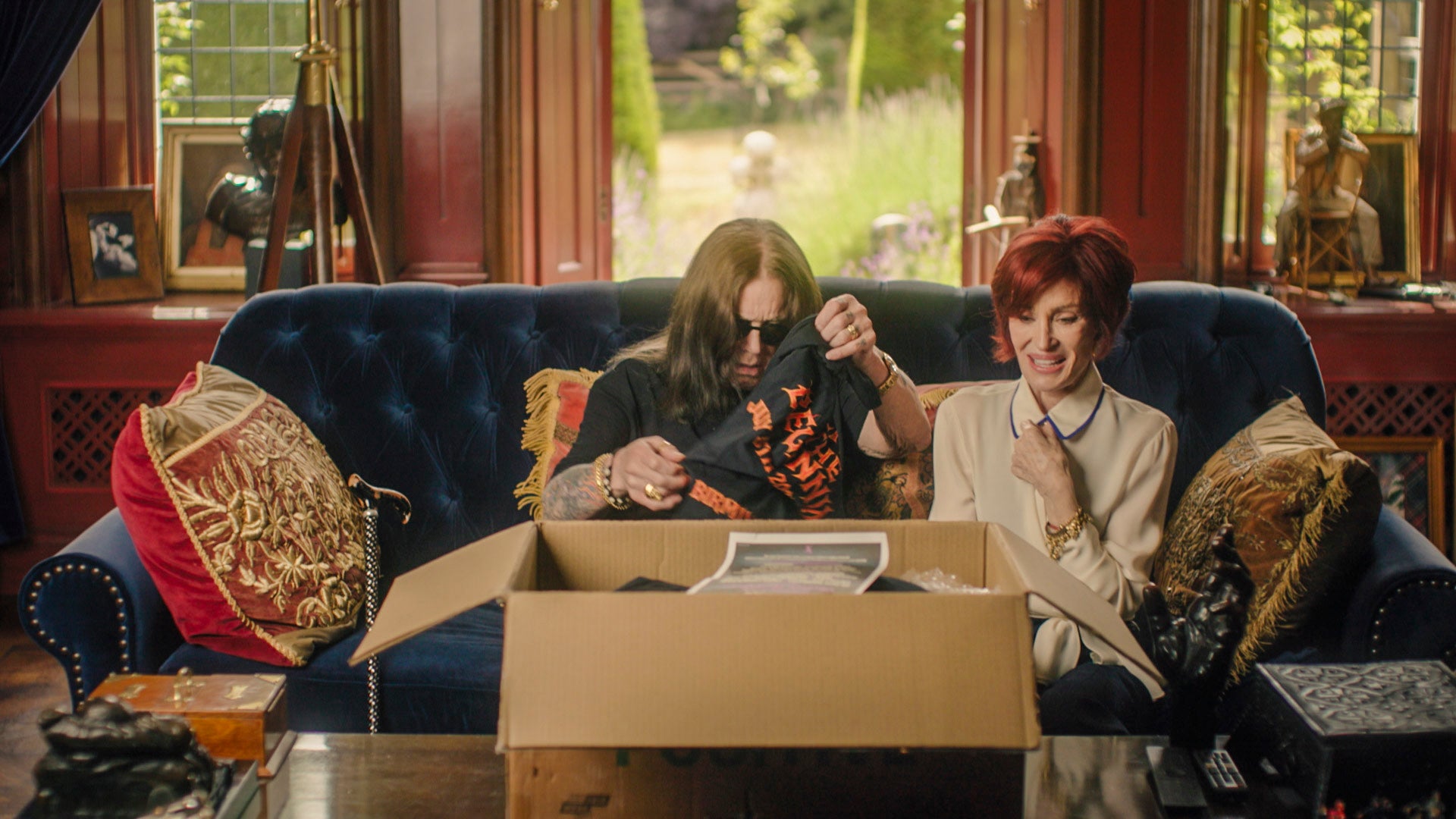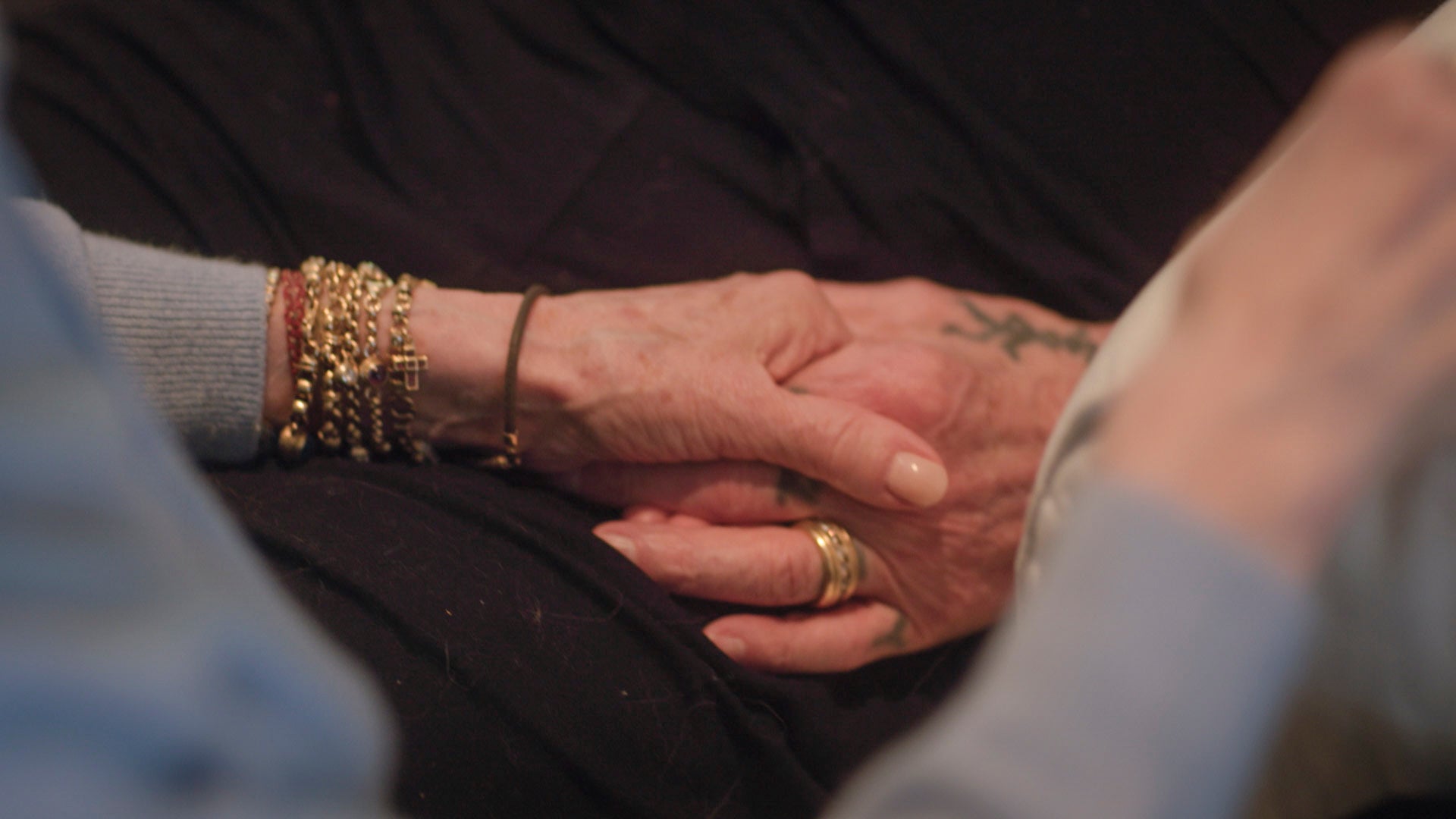There’s a wonderful scene in the BBC One documentary Sharon & Ozzy Osbourne: Coming Home that shows the Prince of Darkness and his famous wife surveying their new home. Well, their old, new home. They’re driving around Welders House in Buckinghamshire (more grade II super-mansion than house) to see the lake Sharon has installed, along with a host of other upgrades. While they used to live here with their children before moving to Los Angeles, where they became household names with the reality TV show The Osbournes, the ducks never left.
Those ducks right there, quacking and waddling, are the descendants of the ones they once knew, Sharon explains sweetly, to Ozzy. We cut to the then 76-year-old Black Sabbath frontman inside, who exhales to the camera, “I feel like I’m finally home.” Ozzy never got to fully enjoy that lake in later life, because he died in July, only two weeks after Black Sabbath’s farewell show in Birmingham’s Villa Park. Now he’s buried there by the water’s edge – and thankfully not, as he humorously says in the film, in America, in the “McDonald’s version of a cemetery”.
Coming Home was originally intended to be a 10-part documentation of the married couple’s move back to England and that farewell show. It was then converted into a one-off film and, after he died, was scheduled for release in August. But the BBC agreed to postpone it until now to respect the Osbourne family’s wishes. What would have already been a moving film, elegantly made, on Ozzy and Sharon’s seemingly unending love and the entry into late life together, without the kids, becomes emotionally wrought in light of Ozzy’s death.

All the bittersweet sadness that the Osbournes process on screen is cast with a second meaning in light of his passing; there’s a finality to it all. “This is it: our last chapter,” Sharon says at one point. “It will just be very low-key with Ozzy and I.” Later, when Sharon says to the camera, “Home is where both of us are. As long as he’s with me, I’m alright,” we can only imagine one half of rock’n’roll’s most longstanding celebrity couple alone. Elsewhere, after we’re a fly on the wall to Ozzy’s training to be able to walk for his gig, we discover he had to do the show sitting down because of his Parkinson’s. During the debrief back at the house, his daughter Kelly tells him everyone was crying to his rendition of “Mama, I’m Coming Home”. Ozzy is visibly tearful hearing this: “I haven’t given a thought to what happens next, but I can retire with a clear conscience,” he says.

Still, it wouldn’t be Sharon and Ozzy’s world if we weren’t laughing. Everything that made The Osbournes so loveable is on display with the full gang back together for the last time: as usual, the family’s multiple dogs (nine) and cats (three) are urinating and defecating everywhere, Kelly is shouting, Sharon is showing Ozzy the merch she’s organised for his final show and of course he is indifferent to it (“…That’s crap,” he remarks after a perfect beat). There’s always been something childlike and unintentionally funny about Ozzy’s way of expressing himself that hasn’t remotely changed across the decades, nor with the degenerative effects of his Parkinson’s diagnosis. “I want to go back to my house. I haven’t been to my house in ages,” he says of Welders House in his singsongy Brummie accent near the opening of the film, only to say moments later: “F*** America. I never wanted to be in America.”
Perhaps what resonates the most about Coming Home is the film’s updated thesis: that there is no Ozzy Osbourne without the music. He couldn’t exist without it – and after the final concert, his mission on earth was complete. This clear subtext doesn’t feel glib but beautiful. Over a clip of Ozzy facing the crowd, we see what he sees – bodies undulating, crying out – and he explains, “I need them. Like air.”







